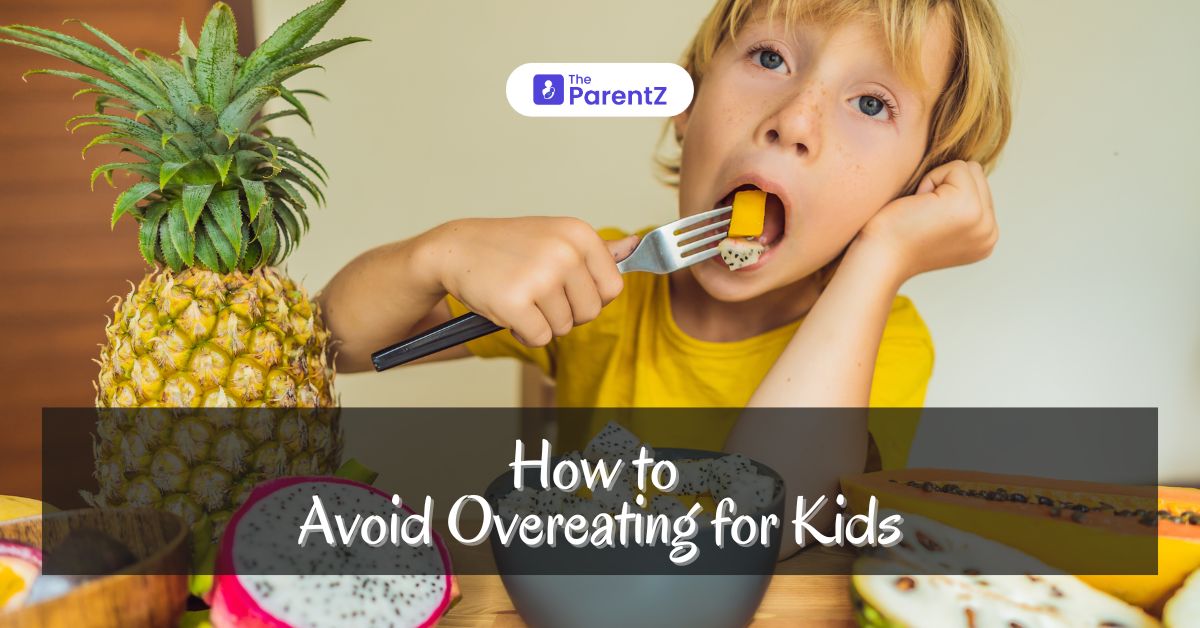Childhood is a critical period for developing lifelong habits. Teaching kids how to avoid overeating can set the foundation for a healthier future. This article will explore the causes of overeating, the importance of healthy eating habits, and provide actionable tips for parents and caregivers.
Understanding Overeating
Overeating occurs when a person consumes more food than their body needs for energy. In children, this can be influenced by various factors, including emotional distress, boredom, exposure to unhealthy foods, and lack of knowledge about proper portion sizes.
Importance of Healthy Eating Habits
Healthy eating habits are crucial for children’s growth and development. They help maintain a healthy weight, provide necessary nutrients, and establish a positive relationship with food. Preventing overeating is a key component of fostering these habits.
Practical Tips to Prevent Overeating
A. Establish Regular Meal Times
Consistency is vital when it comes to meals. Set regular times for breakfast, lunch, dinner, and snacks. This helps regulate hunger and prevents children from grazing throughout the day, which can lead to overeating.
B. Encourage Mindful Eating
Teach children to eat slowly and pay attention to their hunger and fullness cues. Mindful eating helps them recognize when they are genuinely hungry and when they are satisfied, reducing the tendency to overeat.
- Engage in Conversation: Encourage family meals where you can talk and enjoy each other’s company, making the eating experience more about connection than consumption.
- Avoid Distractions: Turn off the TV and put away gadgets during meal times to help kids focus on their food.
C. Offer Balanced Meals
Ensure that every meal includes a balance of proteins, carbohydrates, and fats. A well-rounded diet provides the necessary nutrients and keeps kids feeling full longer, reducing the likelihood of overeating.
- Include Fruits and Vegetables: Make half of their plate fruits and vegetables to add volume and nutrients without too many calories.
- Whole Grains and Proteins: Incorporate whole grains and lean proteins to provide sustained energy.
D. Limit Sugary and Processed Foods
Sugary and processed foods can be highly addictive and are often consumed in large quantities. Limit these foods and offer healthier alternatives.
- Read Labels: Educate kids on reading food labels to understand the nutritional value of what they are eating.
- Healthy Snacks: Keep fruits, nuts, and yogurt available as snacks instead of chips and candy.
E. Promote Physical Activity
Regular physical activity helps balance the calories consumed and burned, making it easier to maintain a healthy weight.
- Encourage Outdoor Play: Promote activities like biking, playing sports, or simply running around outside.
- Family Activities: Plan family hikes, bike rides, or dance parties to make physical activity fun and engaging.
F. Avoid Using Food as a Reward
Using food, especially unhealthy options, as a reward can create an emotional connection to eating and contribute to overeating.
- Non-Food Rewards: Use praise, stickers, or extra playtime as rewards instead of sweets or fast food.
- Celebrate with Activities: Celebrate achievements with fun activities rather than food treats.
Creating a Supportive Environment
A supportive environment at home is crucial in helping children develop healthy eating habits. Here are some ways to create such an environment:
- Lead by Example: Children mimic adult behaviors. Eat healthily and show enthusiasm for balanced meals.
- Make Healthy Foods Accessible: Keep a variety of healthy foods in the house and limit the availability of unhealthy options.
- Involve Kids in Meal Planning: Let them help with grocery shopping and meal preparation to learn about nutrition and develop an interest in healthy eating.
Conclusion
Preventing overeating in children requires a combination of education, structure, and support. By establishing regular meal times, encouraging mindful eating, offering balanced meals, limiting unhealthy foods, promoting physical activity, and avoiding food as a reward, parents can help their children develop healthy eating habits that will last a lifetime.








Be the first one to comment on this story.